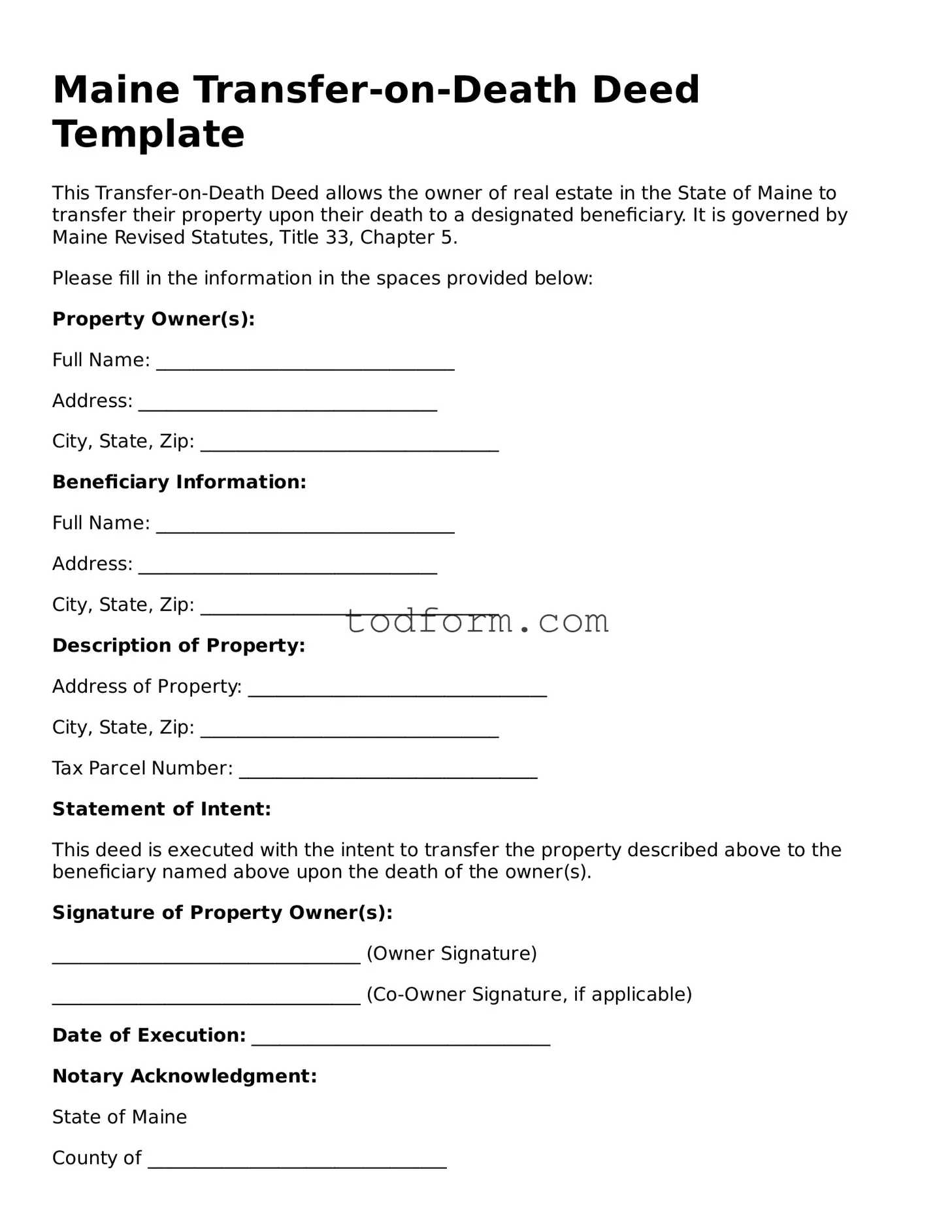Maine Transfer-on-Death Deed Template
This Transfer-on-Death Deed allows the owner of real estate in the State of Maine to transfer their property upon their death to a designated beneficiary. It is governed by Maine Revised Statutes, Title 33, Chapter 5.
Please fill in the information in the spaces provided below:
Property Owner(s):
Full Name: ________________________________
Address: ________________________________
City, State, Zip: ________________________________
Beneficiary Information:
Full Name: ________________________________
Address: ________________________________
City, State, Zip: ________________________________
Description of Property:
Address of Property: ________________________________
City, State, Zip: ________________________________
Tax Parcel Number: ________________________________
Statement of Intent:
This deed is executed with the intent to transfer the property described above to the beneficiary named above upon the death of the owner(s).
Signature of Property Owner(s):
_________________________________ (Owner Signature)
_________________________________ (Co-Owner Signature, if applicable)
Date of Execution: ________________________________
Notary Acknowledgment:
State of Maine
County of ________________________________
On this ____ day of ________________, 20____, before me, a notary public, personally appeared ________________________________ (Property Owner's name), known to me (or satisfactorily proven) to be the person whose name is subscribed to the within document, and acknowledged that he/she executed the same for the purposes therein contained.
In witness whereof, I hereunto set my hand and official seal.
_________________________________ (Notary Public)
My commission expires: _______________
